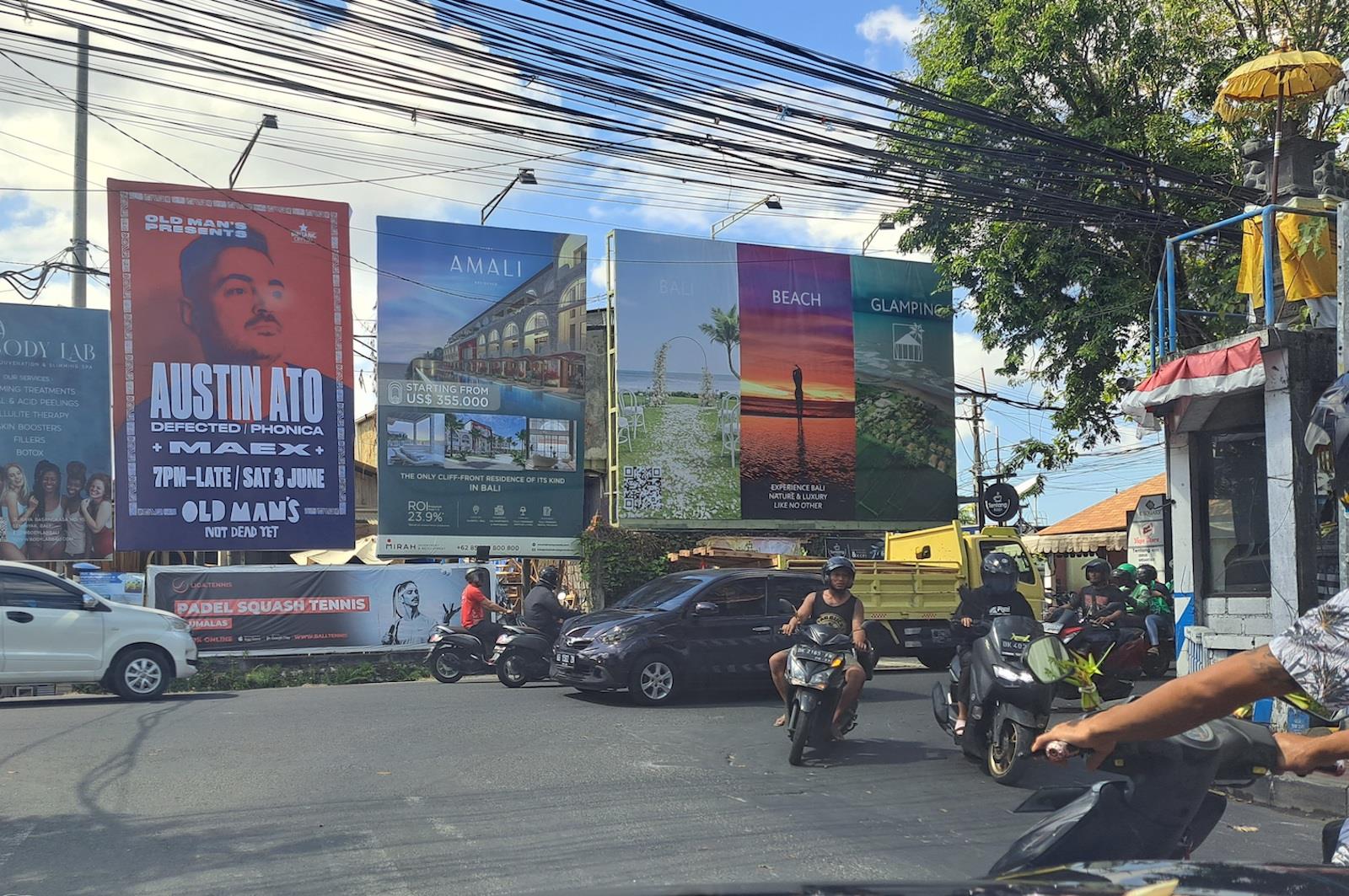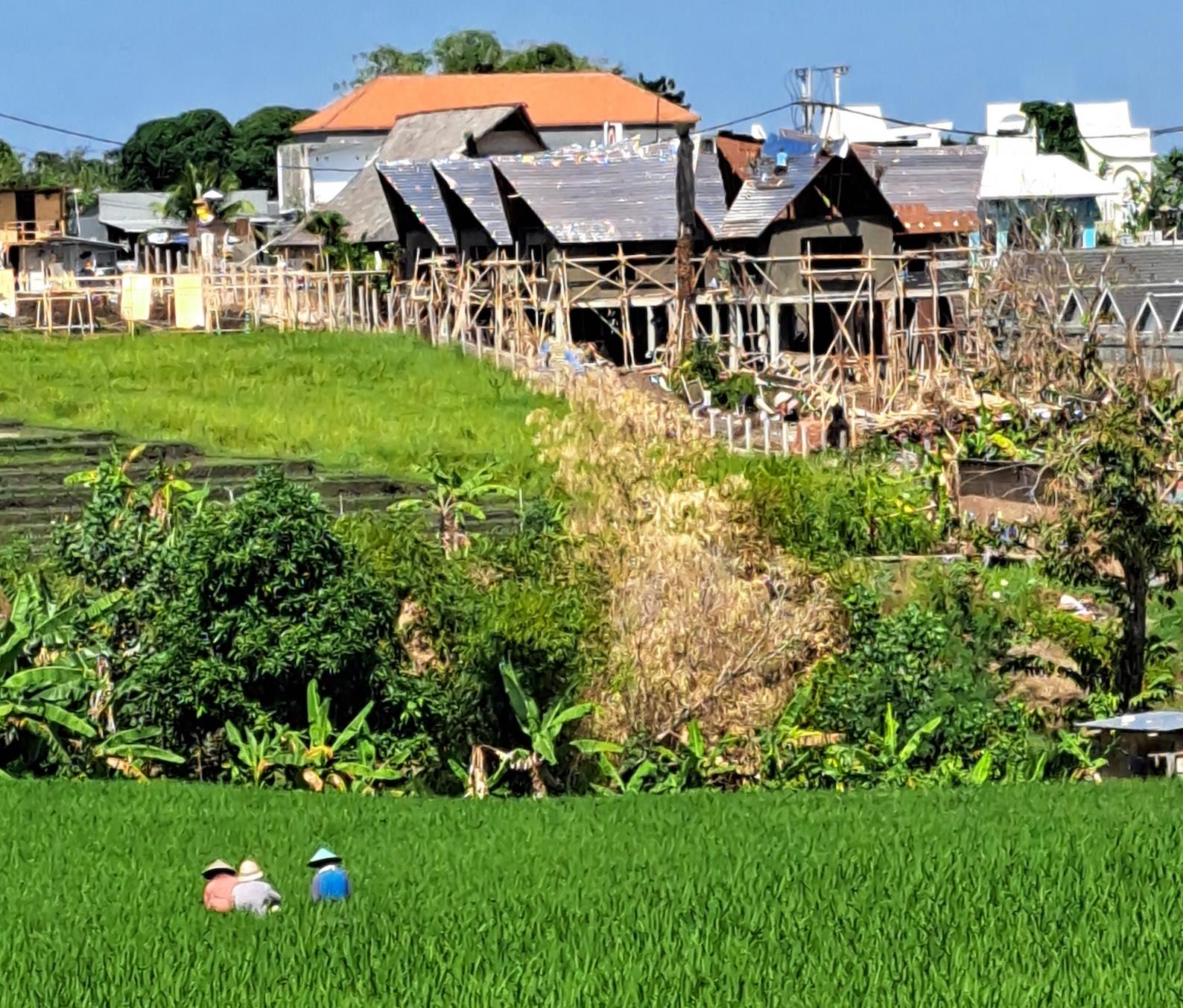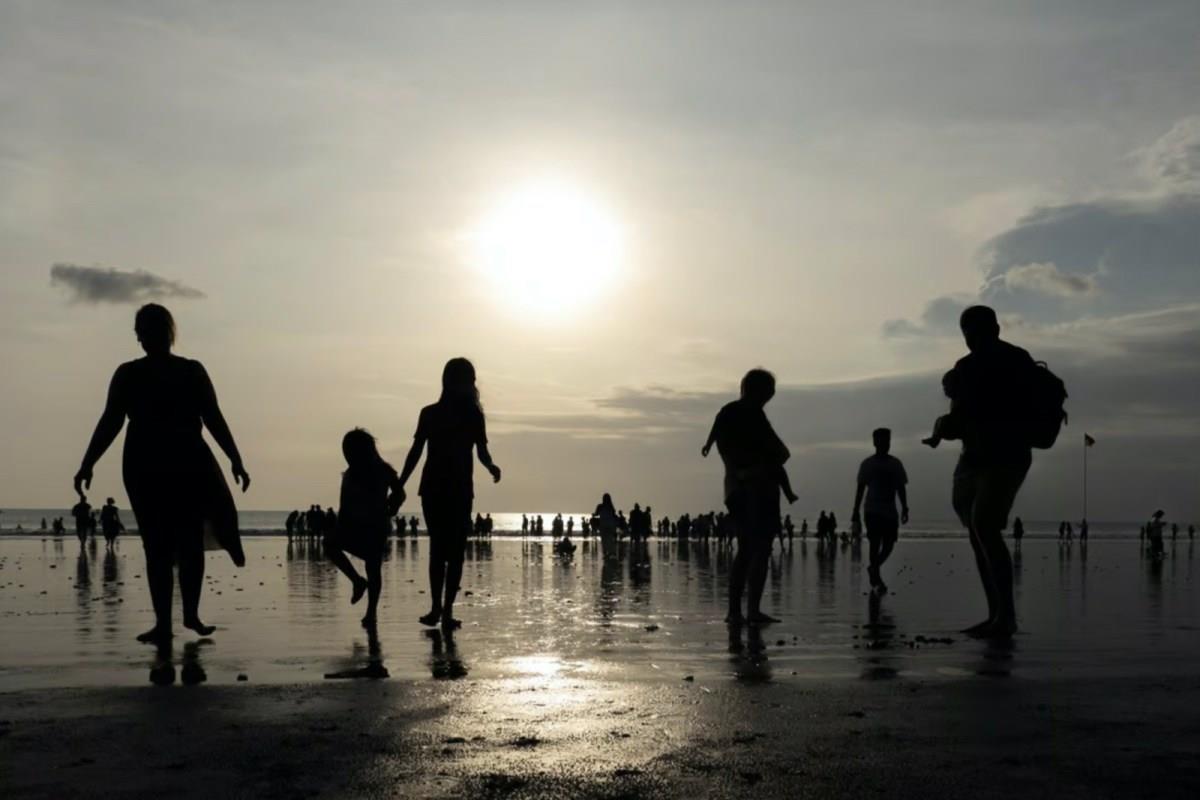(MENAFN- Asia Times) BALI – Back in the early 2000s, Pererenan was a sleepy village on Bali's west coast, lying safely – or so everyone thought – to the north of the main tourist strip on a narrow road running three kilometers through rice fields to a black sand beach and onrushing bands of glassy surf.
Surfers have long known about its reef and beach breaks, of course. But apart from a small hotel and a scattering of food shacks, their presence did little to disturb the quiet ambiance or the frequent Hindu ceremonies typical of Balinese village life.
Even as late as 2017, Pererenan was described in one property advertisement as“the perfect hideaway if you are open to a countryside lifestyle among green rice paddies far from overcrowded tourist hot spots.”
Not anymore. In a trend that perversely accelerated during the Covid pandemic when international tourism dried up, foreign residents migrated north from the southern end of the island and settled around Canggu, 20 kilometers up the coast.
Attracted by cheaper land prices, small business operators and digital nomads created a universe of their own. To the surprise and mixed feelings of its few long-time dwellers, Pererenan – at Canggu's northern end – grew into one of the island's premier foodie streets.
Restaurants and cafes serving everything from Korean and Japanese to Lebanese, Italian and Spanish cuisine now stand cheek-by-jowl with frock shops, French bakeries, convenience
and bottle stores, fitness salons and guest houses.
A 250-room hotel is nearing completion, replete with a deep underground garage to get around height restrictions, the one zoning regulation everyone adheres to even if the rest are either ignored or are non-existent. No-one seems to know.
Suddenly, Bali appears out of control. Pererenan and the neighboring communities of Berawa, Batu Bolong and Echo Beach have become symbolic of an indisputable reality to which local authorities and the central government are now finally waking up.
Such has been the surge in development along the west coast that Bali's road network has been overwhelmed and haphazard building is eating up the picturesque rice fields and other natural attractions that brought tourists to the island in the first place.

Traffic and billboards tell the story of west coast Bali's rampant and chaotic development. Photo: Asia Times / John McBeth
But that has changed too from past years.
Many of the young foreign tourists who come to Bali today are not there for the scenery or the culture or even the surfing.“They are here for the partying,” says one long-term resident.“It's a hedonistic thing, nothing else.”
Coupled with that have been increasing complaints about foreign tourists either overstaying or otherwise breaching visa rules. Russians get most of the blame for bad behavior, pushy real estate deal-making and illegal cryptocurrency trading.
Only last week, Bali police arrested the owner of a car rental business for accepting cryptocurrency, the first such case in Indonesia as Russian visitors seek to find a way around Ukraine-linked sanctions.
About 60 Russians were among the 101 foreigners deported from Bali in the first four months of 2023, including a 40-year-old woman who posted a nude photograph of herself on social media embracing a sacred tree.
A middle-aged Danish woman is currently facing 10 years imprisonment under the 2008 Pornography Law for riding half-naked on a motorcycle, one of more than 250 foreigners who have faced court or other disciplinary action this year.
Kompas daily recently devoted two successive front pages to an investigation into foreigners faking visas and identity cards, engaging in illegal businesses and hiring themselves out as photographic models in violation of their tourist visas.
It is similar to what happened in the Gulf of Thailand resort of Pattaya in the early 2000s before the collapse of the ruble triggered a wholesale retreat.
It is being replayed again in Phuket where Russian visitors dwarf the numbers in Bali, thanks to direct flights from Moscow, looser immigration controls – and the fact that crypto trading, if not transactions – are legal.
At the same time, the number of Russian visitors to Bali has started to fall off dramatically this year, ranking as high as second on the top ten list in January, then dropping to third in February and eighth in March.
Bali authorities have formed a special team to improve so-called“tourism governance,” telling residents that complaints about misconduct should be referred to the team and not posted to social media. There is even talk of a tourist tax, though how it will be imposed is unclear.
Incoming tourists will soon be presented with a“do and don't” card in a bid to educate them on how to behave in an environment where Hindu culture and traditions continue to flourish despite the increasingly heavy foreign influence.
Still, the post-pandemic resurgence has been a relief for an island which relies on tourism for 60% of its gross domestic product (GDP). Last year there were 2.1 million international visitors, compared with just 51 for 2021, although the Chinese have been much slower to return.

Chinese tourists arriving from Nusa Penida at the fast boat pier in Serangan island in Denpasar, on Indonesia's resort island of Bali on January 26, 2020 at the outset of the pandemic. Photo: AFP/Sonny Tumbelaka
For the first four months of 2023, that number was over 1.3 million and well on track to top the 4.5 million forecast for the year – still short of the 6.3 million arrivals in 2019 before the Covid outbreak stopped tourism in its tracks.
With more long-staying residents settling in Bali and the move north taxing the island's infrastructure to its limits, Bali Governor Wayan Koster has proposed putting a limit on tourists by requiring them to register their trip a year in advance.
Koster said that unless the overcrowding is addressed“we will only attract cheap tourists who may just eat nasi bungkus (rice and condiments wrapped in banana leaf), rent motorbikes, break traffic laws and steal from ATMs.”
“We will no longer welcome mass tourism,” he went on in a statement that has alarmed the Bali Hotel and Restaurant Association, which is urging caution before the local government resorts to precipitative action.
Already controversial for his stand against Israel competing in the subsequently canceled FIFA Under-20 football tournament, the governor also sought to ban tourists from renting motorcycles, but that idea appears to have been dropped before it got off the ground.
There are an estimated four million registered motorcycles on the island and an additional 2.9 million motor vehicles. Bali police say motorbike riders account for 1,200 of the annual 1,500 road deaths; drunkenness on the road goes unpunished.
Any plan to relieve the pressure by encouraging development of the northern part of the island died with the decision, pushed by part-Balinese former president Megawati Sukarnoputri, to scrap plans for a second international airport.
Instead, the central government has recently signed off on a 10-kilometer light rail track linking Ngurah Rai airport to Kuta and Seminyak, a long-debated project which was originally planned to extend as far as the seaside temple of Tanah Lot.
That won't happen now, the idea a casualty of skyrocketing land prices – just like the extension to Kuta's Sunset Road, which at one time in the 1990s was planned to run 135 kilometers along the west coast as far as the ferry crossing at Gilimanuk.
Work has also begun on a 100-kilometer toll road from Gilimanuk to Mengwi, directly east of Pererenan. But while it may cut travel time on the inland route, it will do nothing to ease traffic around over-crowded Canggu.
The endless congestion on narrow, village roads hardly designed for mass tourism – and with little space available for car parking – appears to defy any rational solution.
Officials say it is clear they will have to do something to stop rapid land conversion with a conservative 200 hectares of rice field disappearing each year for tourism-related purposes, along with designated green belts.

New restaurants and guesthouses eat into once picturesque rice fields near Pererenan. Photo: Asia Times / John McBeth
A trail of failed businesses indicates market research is largely ignored. But the building proceeds at a frantic pace anyway, now encroaching into Pantai Lima and Seseh, the two small coastal enclaves north of Pererenan.
Some investors are genuinely concerned about what is happening to the island. The owners of one successful restaurant are thinking of buying a choice piece of beachside property just to ensure it doesn't become another giant party club.
The same foresight was shown by a Jakarta lawyer decades ago when he built a family villa complex on relatively cheap land near the mountain resort town of Ubud. He also bought the rice fields on either side and told the farmers to go ahead as if nothing had happened. He is glad he did.
Like this:Like Loading...























Comments
No comment